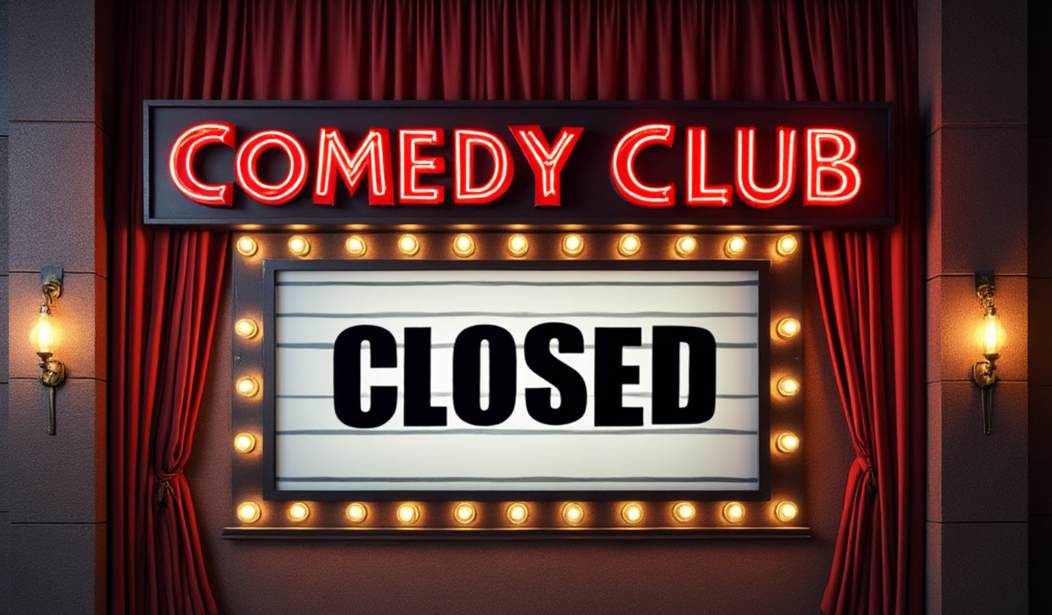These days, you need a license or permit for everything. While some of these "professional" requirements may be necessary, many are simply a means of control.
Why does a beautician or barber need a license? The rules for liquor licenses are arcane and were designed to keep organized crime from controlling the liquor business. "Professional certifications" were initiated to encourage the use of union labor.
In Illinois, you need both a state and municipal liquor license to sell alcohol. It isn't cheap. Some liquor licenses cost as much as $1,500. It's more in some states.
Some regulation is necessary. But the idea that all these regulations, permits, and certifications are necessary for the health and safety of the customer is absurd. If many of these regulations could be eliminated, there could be tens of thousands of more jobs and businesses created.
A good example is a comedy/music nightclub in Chicago called "Humboldt Jungle." The club is unique. It's in the basement of a residence in Humboldt Park and has an unusual business model.
There's no admission fee per se. Patrons would book a seat online by making a $20.50 "donation." Patrons could bring their own booze and order pizzas for a $5 fee, and the entrainment was stellar. Some performers have included blues keyboardist Dan Souvigny, jazz drummer Jeremiah Collier, and comedians Ben Noble and Diya Basrai.
The owner of the home, Nathan Weil, believed he had skirted the law and regulations enough that he would get a pass. He thought wrong. After a video from his club went viral on Instagram, city bureaucrats descended on his house like a bunch of ravenous dogs.
A secret Humboldt Park DIY performance venue got shut down by the city last month after a viral post — but the owner vows to reopen the gem to the community thru a new model and is collecting $ for city fines and attorney fees ahead of a court date.https://t.co/g6VM4OCPKt
— Ariel Parrella (@ArielParrella) September 5, 2024
Weil received four cease-and-desist orders from the Department of Business Affairs and Consumer Protection on Aug. 28, copies of which he provided to the Chicago Sun-Times. The department cites him selling tickets without an amusement license; failing to display an amusement license; offering, selling, serving, providing and/or storing liquor without the required license; and selling or offering food without a required retail food establishment license.
Weil faces between $2,000 and $5,000 in fines and has an Oct. 28 court date. For his part, he disagrees that he was selling tickets, food and alcohol without a license. He claims patrons gave donations online to reserve a seat, most of which went to the performers; the rest of the proceeds he would invest back into the venue like audio equipment. They could preorder food like pizza for a $5 donation and receive it when they arrived, but patrons were never served alcohol.
“I don’t know what the next steps are for me, but I don’t want to stop. I feel I’ve made a big impact in this community and have given people a platform,” Weil said.
Chicago comedian Dwayne Kennedy, who recently performed at the basement venue, agreed.
“It’s always useful to have a place to perform whether you’re up and coming or down and leaving,” he joked. “Some gigs are better than others, some rooms are better than others, but it was good for me, I really enjoyed it.”
Weil will argue the merits of the case in court. But his case highlights the overzealousness of bureaucrats, the state's crushing licensing requirements, and the stifling nature of regulations.
Some examples:
- Louisiana required that florists take a test to sell flowers.
- The FAA won't let you fly your drone in your own backyard.
- A man who worked to retrieve unclaimed property from the state was forced to get a private detective license.
- A man who billed himself a "spam private eye" had to go to court to convince the state he didn't need a private detective license.
Bureaucrats on power trips, politicians who are control freaks, and regulators who are carving out little fiefdoms for their own aggrandizement shouldn't be allowed to get in the way of entrepreneurs and dreamers who should have the right to pursue those dreams with as little interference as possible.
“The way I’ve operated is to try to give the artists as much money as I can,” Weil said. “It’s not about money; it’s about the love of entertainment and shining the light on Chicago talent. If it becomes a commercial venue it will become about money, and that changes the game.”
He shouldn't be forced to abandon that philosophy for specious reasons.










